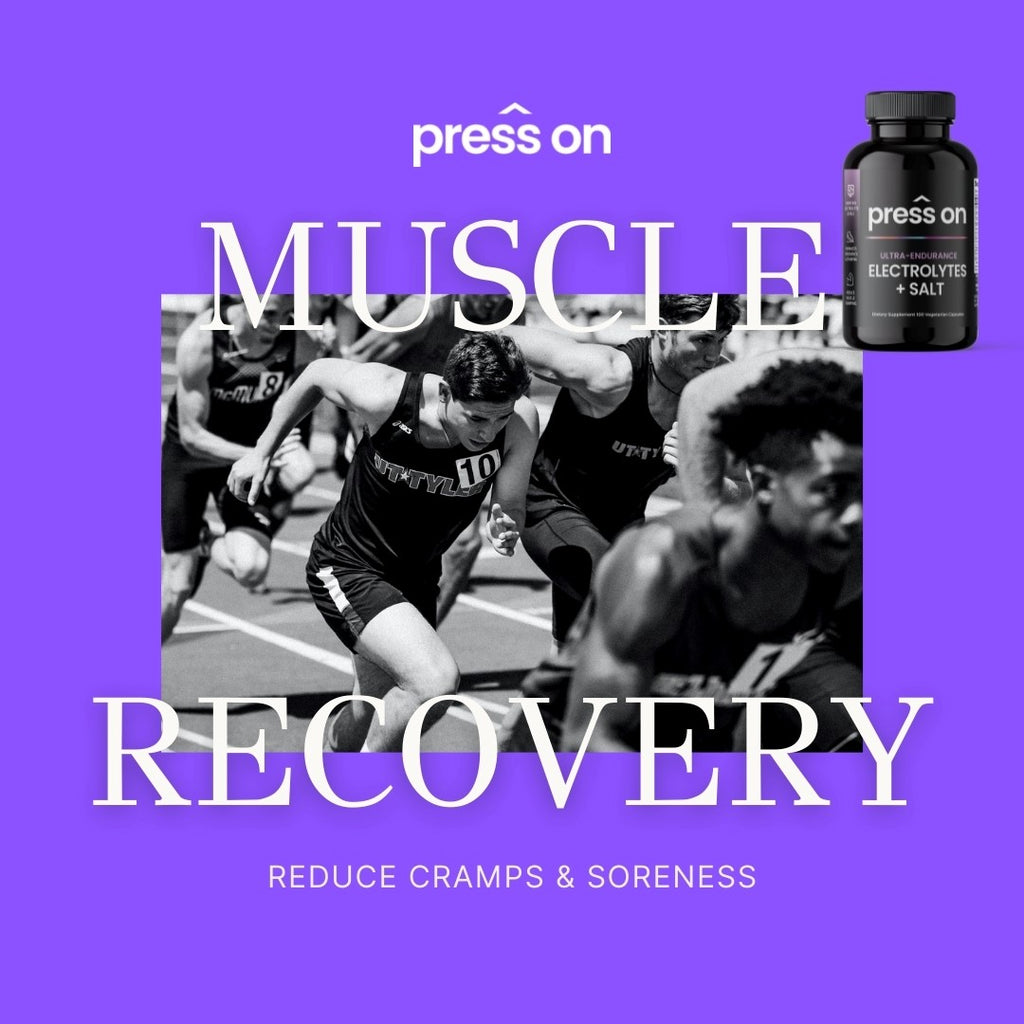We all know that, despite being a simple sport, there are a lot of “little things” that go into running health and performance.
For example, you’re probably well aware of the importance of hydration. But what about electrolytes?
The big drinks companies have been telling us about the importance of them for years, and they are right….to an extent, but not in the way you think.
If you have ever cramped in a marathon, run on a hot summers day, or sweat to the point where the salt crystalized around your eyes, you definitely have required electrolytes.
Even if you have not, if you have lived and breathed, your body needed electrolytes, and we are going to explain what they are, and how you can keep yours up to where they should be (without risking diabetes by constantly taking in sugary drinks!).
How is this running article different to others?
Instead of writing yet another useless “news flash” article about how you need to drink more in the summer, I’m going delve into some of the specifics of hydration – how electrolytes and hydration go hand-in-hand.
Now, most running articles discuss hydration and mention that electrolytes are necessary, however, they fail to explain what electrolytes are and why keeping them balanced is crucial to a runner’s health and success.
Let’s get started.
What are Electrolytes?
Electrolytes are similar to laundry soap in your washing machine; although soap doesn’t make your washer run, it is necessary to get your clothes clean.
Like laundry soap, balanced electrolytes are necessary for your digestive, cardiac, muscular and nervous systems to function well.
Electrolytes are sodium (Na+), potassium (K+), calcium (Ca 2+), magnesium, (Mg 2+), chloride (Cl-), phosphate (PO4 2-), bicarbonate (HCO3-), and sulfate (SO4 2-).
Sodium, potassium, magnesium and calcium are the four major electrolytes that maintain the body’s fluid balance.
As a side note, the + and – symbols mean these minerals are ionic. Their ionic nature gives the electrolytes the ability to carry electrical energy to keep the body’s systems functioning.
Why is Electrolyte Balance Important for Runners?
For a runner, keeping your electrolytes balanced is key for successful training and optimum performance.
If your electrolytes are imbalanced, you could potentially compromise the success of your next run because of muscle fatigue or cramping.
Moreover, drinking water alone isn’t enough.
If you are trying to rehydrate by drinking a lot of water, failing to consume electrolytes at the same time can upset the balance of electrolytes in your bloodstream.
In a worst-case scenario—drinking lots of water during a very long race in the heat, for example—this can even lead to a dangerous condition called hyponatremia, where blood sodium levels drop too low.
Therefore, keeping your electrolytes balanced is critical for both performance and health.
Along with the more frequent muscle cramps in the legs, stomach cramps or side stitches can also be the result of an electrolyte imbalance.
But wait, there’s more:
Other electrolyte imbalance symptoms are: muscle spasms, dizziness, fatigue, nausea, constipation, dark urine, decreased urine output, dry mouth and foul breath, dry skin, muscle weakness or stiff and achy joints.
Electrolyte Balance and Cramping in Runners
While running you lose electrolytes through your sweat, mainly sodium and potassium.
Potassium permits the movement of fluids and nutrients across your cells’ membranes, thus allowing them to carry on their metabolic activities such as contacting muscles.
Without sufficient potassium, your muscles cells can’t generate the necessary nerve impulses that control muscle contraction.
Cramping is the body’s way of letting you know the electrolyte tank is empty and it cannot continue; it’s like a car running out of gas.
Even you’ve never experienced cramping, electrolytes need to be replenished after sessions longer than a hour to facilitate optimal recovery.
Electrolytes and Running Performance
Even in more mundane situations, when not racing in extreme heat, maintaining your electrolyte balance has its advantages.
A 2001 study by Sanders, Noakes, and Dennis found that cyclists who consumed a sports drink with sodium in it during a 4.5 hour ride produced much less urine than those who consumed an equivalent volume of salt-free sports drink.
They concluded that this was because the cyclists did not need to excrete as much water to balance out the sodium concentration inside their bodies.
This bodes well for marathoners—after all, who wants to have to take a bathroom break during a race?
It seems strange that the “saltiness” of a fluid influences how much urine your body will produce, but when the fluid you’re drinking (the sports drink) is closer in electrolyte concentration to the fluid you’re losing (sweat), your body can more or less replace the sweat one to one instead of having to add in electrolytes that are already in your body, resulting in lower overall sodium levels in your blood.
Electrolytes and Running Performance
Even in more mundane situations, when not racing in extreme heat, maintaining your electrolyte balance has its advantages.
A 2001 study by Sanders, Noakes, and Dennis found that cyclists who consumed a sports drink with sodium in it during a 4.5 hour ride produced much less urine than those who consumed an equivalent volume of salt-free sports drink.
They concluded that this was because the cyclists did not need to excrete as much water to balance out the sodium concentration inside their bodies.
This bodes well for marathoners—after all, who wants to have to take a bathroom break during a race?
It seems strange that the “saltiness” of a fluid influences how much urine your body will produce, but when the fluid you’re drinking (the sports drink) is closer in electrolyte concentration to the fluid you’re losing (sweat), your body can more or less replace the sweat one to one instead of having to add in electrolytes that are already in your body, resulting in lower overall sodium levels in your blood.

